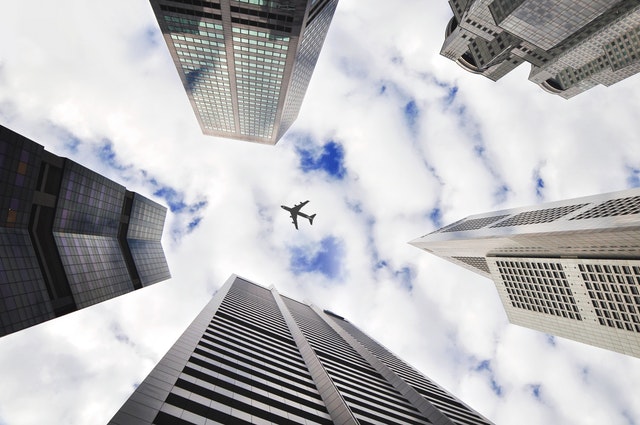The recent ban on personal laptops on certain flights has business travelers worried about what might happen if these temporary safety measures become permanent and become a standard across airlines. How would the modern business traveller adapt to aviation with no modern convenience of a work laptop? Here are some tips to get around it.
Electronics luggage handling fees
Chris Christensen, the entrepreneur behind BloggerBridge and AmateurTraveler, has already been hit by the laptop ban in his journeys. In his view, the biggest problem is not what he can do on a flight without a notebook, but how baggage handlers will cope with assessing expensive laptops, tablets and SLR cameras. Turkish Air was managing this as best they could. They personally checked in each apparatus. They inspected it and put each separately in bubble wrap bags. The bags then went into a unique suitcase or two, which they hand-carried into the airplane. Although this procedure was inconvenient and time-consuming, at least everything arrived to its destination in working order.
Full-time digital nomad Kelly Hayes-Raitt has been travelling around for the past eight years and stocks a number of Christensen’s concerns. After all, her laptop is her livelihood. She predicts airlines will attempt to capitalize on the in-flight ban on notebooks and use it as an opportunity to generate money. She explained that she can envision business coaches advising airlines to respond by creating a more expensive ‘TLC’ luggage fee for prohibited electronics, further nickel-and-diming their clients.
More late night travel
Some business travelers who believe they cannot be productive without their laptops say they will resort to reserving late night flights to compensate for lost work hours. Jason Parks, who possesses a Columbus, Ohio, electronic advertising agency known as The Media Captain, is one such company traveller. He said, I have stress about this, I think business travelers would adapt by taking flights later in the day. I understand this is the path that I would take. I could not afford to be totally unplugged each time I travel during business hours. Travelling at night could give me peace of mind that I am not missing out on important details.
Airline rental laptops
Bruce Clark, an associate professor of marketing at North-eastern University, believes renting reusable laptops might be the reply to an across-the-board laptop ban. He pointed out that executives do not need to look at their own laptops, because of possible damage and data sensitivity.
He explained, airlines or other businesses could provide ‘disposable’ laptops which rely on a cloud management platform to store and protect data. People wouldn’t carry their own laptop, but instead could buy or lease a ‘shell’ notebook where users could upload information prior to the flight and/or download information after the flight. Provided that there’s no information saved on the notebook, it doesn’t matter whether the laptop is stolen or damaged. This is particularly useful for those in professions where workers need that crucial in-flight time to prepare for presentations soon after they land, such professions include international keynote speaking, motivational speakers and international consultants.
The creator of CutCableToday, Chris Brantner, agrees with Clark’s notion of Airlines leasing laptops: I believe that if there is ever a complete ban on notebooks, airlines will begin renting out laptops on flights. Some airlines do it with tablets already for amusement purposes. So ideally, you would have the ability to carry a flash drive or keep everything stored in the cloud, rent a notebook in-flight and get to work.
Work friendly telephones and docks
With no option to work on their laptops, many business travelers will probably turn to their phones for basic jobs. If laptop-free flying becomes the standard, it is likely that phone manufacturers will respond with a broader variety of work friendly phones especially for travel.
Jonathan Rodriguez, the founder, president and CEO of BitMar Networks, thinks phones are the best answer to any (and all) laptop bans. He advocates frequent business travelers ask their employers to provide them with mobiles that are equally good quality and intended for business use.
In Rodriquez’s view, the best company friendly Smartphone is the Windows Phone, especially the 950XL. It’s literally a hand-held computer that even functions as one, when you connect it to Continuum. The same could be said of the Samsung Galaxy 8 and 8+, which is turned into computers through the DeX Station. If Rodriguez’s estimation is right, more mobile companies may well launch business-centric mobiles that attach to compatible desktop or notebook docks.
Relaxation and socializing
Surprisingly, some jet-setting entrepreneurs are not at all concerned about the possibility of future notebook bans on flights. Mary Kaarto, a writer and conference speaker, said, she would sleep, read or really engage with anyone next to her.
Eva Doyle, the speaker, business coach and consultant behind The Reluctant Leader, stocks Kaarto’s general viewpoint. She said she would spend her long business travel hours relaxing, reading and doing occasional work on her telephone or tablet computer. Doyle thinks it is possible that cheap and rugged journey laptops (constructed to endure rough baggage handling) may become popular but also pointed out that in-flight working hasn’t been perfect, the expectation was that individuals will do work on flights, but let’s face it, even in business class, working on your own computer is a small pain. In coach, it is absolutely miserable. Many business travelers will be relieved they cannot work on flights, even if they don’t acknowledge it.
Nobody knows for certain what the future of business travel will be like, but something is clear: there is no possible ban that may quell the innovation and persistence of travelling entrepreneurs.
